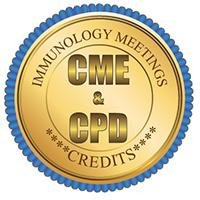
Gopal Krishnan
Global Product Manager- Bioassays, Promega Corporation, USA
Title: Quantitative and Reproducible Cell-Based Bioassays to Advance Immunotherapy Programs
Biography
Biography: Gopal Krishnan
Abstract
Chemotherapy and radiation therapy of cancer cells are associated with several side effects since a large population of rapidly dividing healthy cells also get destroyed. Such treatments reduce the patient’s quality of life. Therefore development of therapeutic antibodies against immune checkpoints for the treatment of cancers is gaining momentum and has already shown promising results in clinical trials. However, the functional screening and development of antibody drug candidates often relies on the use of human primary immune cells that are technically challenging to implement and highly variable. Primary peripheral blood mononuclear cells (PBMCs) are routinely used in traditional bioassays to measure potency, stability of antibody drugs. We have developed mechanism of action-based potency reporter bioassays using engineered cell lines that offer numerous advantages including optimized and rapid workflow, data reproducibility and robustness. For these reasons, and because they are easy to implement and transfer between global sites, reporter-based bioassays are now widely adopted in controlled drug development environments.
The presentation will discuss the development of reporter based Fc bioassays and immune checkpoint reporter assays for immune checkpoint receptors utilizing engineered cell lines to serve as the effectors cells and artificial antigen presenting cells. Promega bioassays are pre-qualified to assess repeatability, intermediate precision, specificity and linearity. These bioassays are principally developed to measure the function of ADCC and ADCP mediating antibodies and immune checkpoint blocking antibodies.

